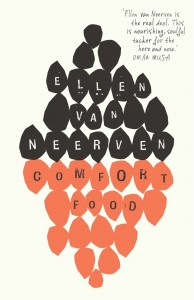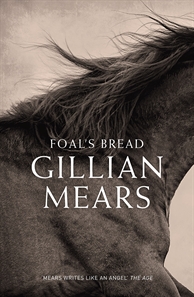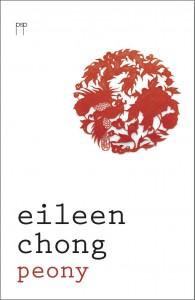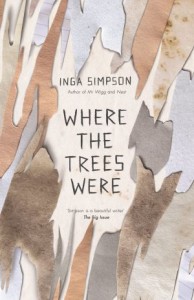As I put this wrap-up together yesterday (on Australia Day), I thought about the many different voices that chorus on this continent and how privileged we are to hear them. AWW’s readers were certainly listening in 2016!
 There were 27 reviews of books by Indigenous women writers. Some of these were of new releases such as Marie Munkara’s Of Ashes and Rivers that Run to the Sea, Anita Heiss’s Barbed Wire and Cherry Blossoms and Lahrissa Behrendt’s Finding Eliza, and others were works to which AWW readers often return, such as Ambelin Kwaymullina’s YA series The Tribe. It was also good to see some reviews of Indigenous poets, including Ali Cobby Eckermann and Ellen van Neerven. In July we were delighted to post an interview with Melissa Lucashenko to celebrate the culture and creativity of Indigenous and Torres Strait Islanders in NAIDOC week.
There were 27 reviews of books by Indigenous women writers. Some of these were of new releases such as Marie Munkara’s Of Ashes and Rivers that Run to the Sea, Anita Heiss’s Barbed Wire and Cherry Blossoms and Lahrissa Behrendt’s Finding Eliza, and others were works to which AWW readers often return, such as Ambelin Kwaymullina’s YA series The Tribe. It was also good to see some reviews of Indigenous poets, including Ali Cobby Eckermann and Ellen van Neerven. In July we were delighted to post an interview with Melissa Lucashenko to celebrate the culture and creativity of Indigenous and Torres Strait Islanders in NAIDOC week.
Alas the number of reviews of books by Indigenous women writers has continued its downward trend (from 35 last year to 27 this year). One of the best ways to learn about Indigenous people and their long history is to read their work. Jeanine Leane wrote a fantastic article on this in Overland which is well worth a read.
 In April we hosted a focus on Australian women writers with disability and were delighted to have guest posts from Gaele Sobott and Amanda Tink. I also penned a post on the importance of books featuring characters with disability, so that young people with disabilities can seem themselves reflected in our literature. We also sadly said goodbye to Gillian Mears who suffered from multiple sclerosis, and whose wonderful novel Foal’s Bread was inspired by this condition.
In April we hosted a focus on Australian women writers with disability and were delighted to have guest posts from Gaele Sobott and Amanda Tink. I also penned a post on the importance of books featuring characters with disability, so that young people with disabilities can seem themselves reflected in our literature. We also sadly said goodbye to Gillian Mears who suffered from multiple sclerosis, and whose wonderful novel Foal’s Bread was inspired by this condition.
18 books were reviewed in this category this year, 4 fewer than last year, but our readers picked up some very good titles, including Anna Spargo Ryan’s The Paper House, Stella award winner Fiona Wright’s Small Acts of Disappearance and the Defying Doomsday anthology, edited by AWW’s Tsana Dolchiva & Holly Kench.
 We also held a focus on Australian women writers of migrant background, featuring posts by poet Eileen Chong, memoirist Lee Kofman and poet and fiction writer Michelle Cahill.
We also held a focus on Australian women writers of migrant background, featuring posts by poet Eileen Chong, memoirist Lee Kofman and poet and fiction writer Michelle Cahill.
Women writers of migrant background have always been well-reviewed, and this year they made up the largest category, with some 47 reviews (one more than last year). Popular writers included Melina Marchetta, Sulari Gentill, Maxine Beneba Clarke and Leah Kaminsky.
 Of books by lesbian/queer writers, there were 25 reviews, 5 more than last year. The most frequently reviewed included Inga Simpson’s Where the Trees Were, Magda Szubanski’s Reckoning and C.S. Pacat’s Captive Prince series. In April this year we’ll host another focus on lesbian/queer women writers, so keep your antennae up for more writers to read!
Of books by lesbian/queer writers, there were 25 reviews, 5 more than last year. The most frequently reviewed included Inga Simpson’s Where the Trees Were, Magda Szubanski’s Reckoning and C.S. Pacat’s Captive Prince series. In April this year we’ll host another focus on lesbian/queer women writers, so keep your antennae up for more writers to read!
Sadly, this will be my final post as diversity editor for AWW as my workload has become unmanageable this past year. I’m handing my baton over to writer and journalist Marisa Wikramanayake, although I’ll still coordinate our guest posts by writers of diverse backgrounds. It has been such a joy to participate in conversations about diversity with readers and writers these past five years, and I’m so grateful to Elizabeth Lhuede and the AWW team for this opportunity. Ever since I was a girl I read books to open up my world, as being deaf made me very isolated, but in the last five years my horizons have broadened exponentially through the books about diversity which I’ve covered.
So I also owe a huge thank you to AWW readers for speaking out in conversations about literature and diversity in Australia. It’s been a delight to listen to you – keep up the fabulous chatter! If you haven’t signed up for 2017, you can head to the sign up page here.
About Me
 I’m Jessica White, a novelist and researcher, and I’ve been deaf since age 4 when I lost most of my hearing from meningitis. I have a PhD from the University of London and have published two novels with Penguin, A Curious Intimacy (2007) and Entitlement (2012). I’m working on a book of non-fiction about Rosa Praed and her deaf daughter Maud, as well as my third novel, The Sea Creatures, which won funding through the Australia Council’s Artists With Disability program. You can find more information about me at my website. I’m also on Twitter @ladyredjess.
I’m Jessica White, a novelist and researcher, and I’ve been deaf since age 4 when I lost most of my hearing from meningitis. I have a PhD from the University of London and have published two novels with Penguin, A Curious Intimacy (2007) and Entitlement (2012). I’m working on a book of non-fiction about Rosa Praed and her deaf daughter Maud, as well as my third novel, The Sea Creatures, which won funding through the Australia Council’s Artists With Disability program. You can find more information about me at my website. I’m also on Twitter @ladyredjess.






Thanks so much for this post, and for the years you’ve put into your section of the challenge Jess. I completely understand your need to pass the baton on, but am so glad you are keeping you toes in the water here so that we can continue to feel your presence. I think of all the “other” it’s probably writers with a disability who get the least airplay so you’ve done a good job bringing more attention to them.
It’s interesting to see how the figures go and to wonder why some areas have declined and some increased (albeit some of these not significantly). I am going to try to up the ante this year – but I’m not making promises because my life is (also) proving very busy at present.
Thank you too, Sue, especially for commenting on the posts all these years! The decline in Indigenous writers might also be because I haven’t had time to promote them – I’m going to try & fix that with a few more guest posts this year. And yes, disability does fly very much under the radar, which is puzzling, although there are fewer writers with disability around in general (I think we are all too tired!). Good luck with your reading this year – if only we had another extra day in the week!
Thanks Jess for a very interesting wrap up. Like Sue, I’m interested in the stats. I know I’m guilty of reading but not reviewing a few in this category that have come to my attention as the result of the challenge, including Ellen van Neerven’s collection, Heat and Light, and Fiona Wright’s Small Acts.
And thank you so much for your contribution to the challenge. It has been very much appreciated. I look forward to seeing your occasional post and your story about Rosa Praed’s daughter, Maud. Now that I’m researching some of our “classics”, I’m more intrigued than ever by your story.
Thank you too, Elizabeth, for inviting me all those years ago! It’s been fantastic, & illuminating. The book is very nearly done (thank god), & I must say I love the focus on the classics – I’ll be adding a few reviews to that category this year!
Glad to hear it, Jess – on both counts, your books and your intention to review some classics. Looking forward to seeing what you choose.